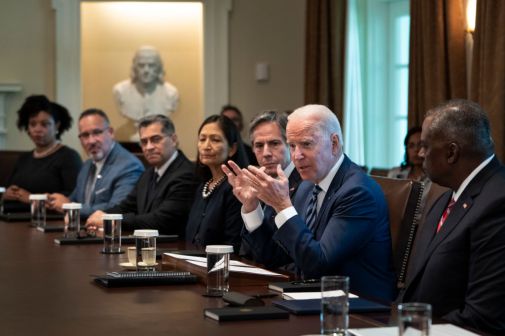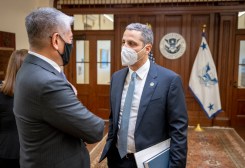The federal government, particularly the defense and homeland security communities, plan to hire thousands of cybersecurity professionals in the coming years. And from health care to financial services, the private sector is engaged in an all-out war to attract the best and the brightest of the roughly 40,000 students who graduate each year with a degree in computer science.
But while the demand for skilled cyber-warriors is almost certain to remain strong, the U.S. faces a daunting challenge few experts ever really considered: The small number of young people who actually thought about cybersecurity as a potential career field found the idea less than appealing.
In fact, a new survey commissioned by Raytheon and conducted by Zogby Analytics, found 82 percent of U.S. millennials (those born between the 1980s and the early 2000s) say no high school teacher or guidance counselor ever mentioned to them the idea of a career in cybersecurity. The survey, released Oct. 15, also found less than one-quarter of young adults aged 18 to 26 believed the career is interesting at all.
The survey found many young adults raised on social media sites such as Facebook, Twitter and Pinterest, trust technology and are not overly concerned about cyber-threats including identity theft. Twenty-six percent of respondents said they had never changed their mobile banking password.
“Given that we need to add thousands of cybersecurity professionals to the workforce in the coming years, the data shows we have a long way to go in engaging young people in the idea of a career path in cybersecurity,” said Michael Kaiser, executive director of the National Cyber Security Alliance. “We have to work together to ensure that young people are prepared to use technology safely, securely, ethically and productively and are aware of the interesting and rewarding jobs available protecting the Internet.”
The survey comes at a particularly difficult time for federal agencies. The prolonged government shutdown, coupled with a grim budget forecast, has hurt morale and made the idea of working for the federal government less attractive. But there may be more intractable obstacles to improving the federal cybersecurity workforce projection, including what some have characterized as an overly onerous hiring process that turns away hacking talent and an authoritarian culture that can stifle innovation.
And yet, sometimes the numbers don’t tell the whole story as to why some agencies haven’t been able to hire more cybersecurity workers. The Department of Homeland Security’s Scholarship for Service program — one of three national scholarship programs sponsored by the government — is projected to graduate only 200 students per year. But of the more than 1,000 SFS graduates who have already entered the workforce in the last 10 years, DHS has hired only 25.
“Today’s millennials are tomorrow’s leaders, and their embrace of technology will continue to drive our economy forward,” said Jack Harrington, vice president of cybersecurity and special missions for Raytheon’s intelligence, information and services business. “This survey shows the gaps that exist in teaching personal online security to our youth and in our efforts to inspire the next generation of innovators.”
Other key findings:
- Young men (35 percent) are far more interested than young women (14 percent) in a career in cybersecurity.
- Eighty-six percent said it’s important to increase cybersecurity awareness programs in the workforce and in formal education programs.






